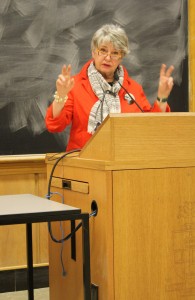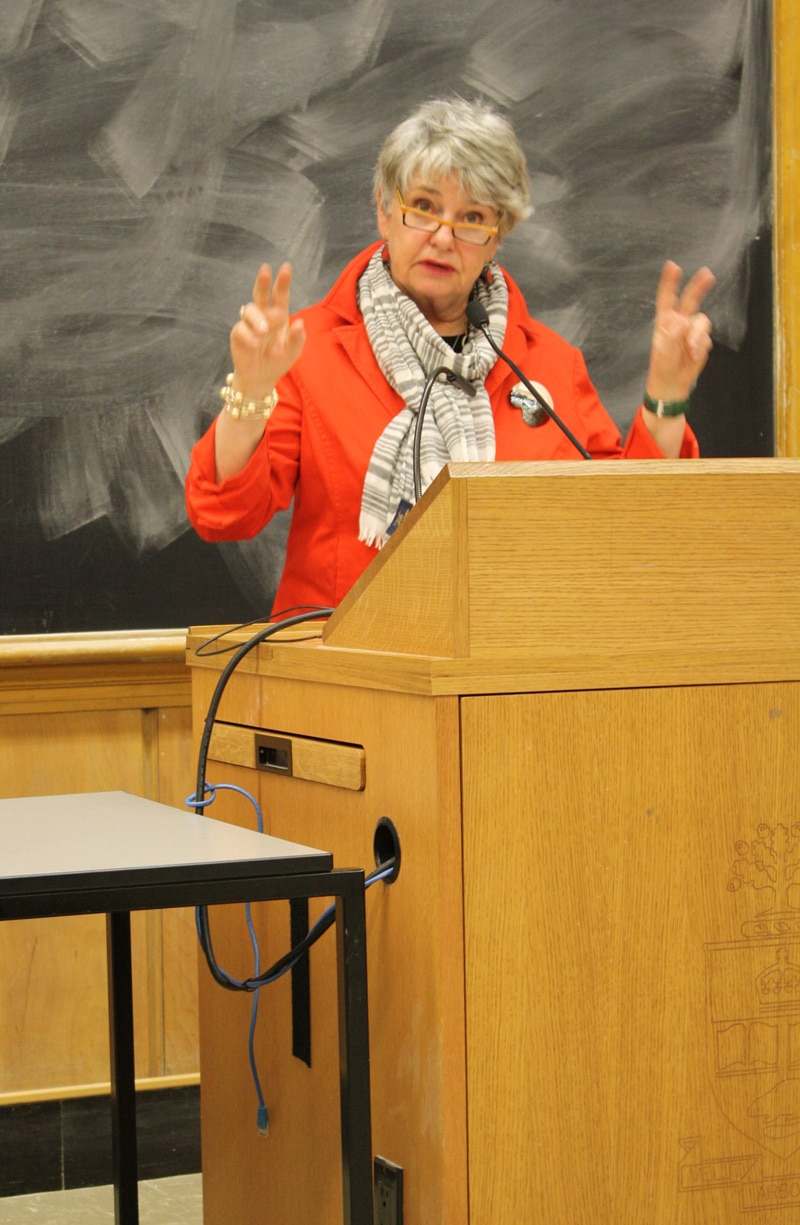
When a friend pointed out that National Post columnist Barbara Kay would be giving a talk at U of T entitled “From Women’s Rights to Feminists Wrongs: Contempt for Men in Contemporary Society,” I was immediately intrigued.
Sponsored by the groups Canadian Association for Equality and Fathers Are Capable Too, the talk was billed as a discussion of how the feminist movement had created a gender-biased family law system in Canada that disproportionately punished men. I was confused, as it was my understanding that feminism aimed to deconstruct all gender stereotypes. This seemed like the very thing that feminist scholars would oppose. Despite Kay’s hyperbolic history, I wanted to hear her argument. Where, exactly, had we gone wrong?
Kay’s “argument” left a great deal to be desired. Much of her talk consisted of sad stories and anecdotes about a family law system that privileged mothers in custody battles and spousal support decisions. To be sure, this is an issue that many in the legal community find alarming, including Justice Harvey Brownstone. But how is this feminism’s fault?
Kay’s thesis consisted of exactly two propositions: first, she was not “woman-bashing” but in fact “feminist-bashing,” and secondly “feminists believe men and women are absolutely equal except where women are superior,” i.e. as mothers. Case closed.
I had so many questions. Who had she been reading? Why did Kay think that feminists believe women are superior parents? Which feminists ever said that womanhood entailed this essential and superior mothering capability? While feminist thought is as divided as any other discipline, they are almost universally united in undermining the very gender stereotypes that would lead to such a conclusion.
Clearly, Kay fundamentally misunderstands what feminism is. The gender bias she complained disadvantaged men’s claims in family court is just the other side of the sexist coin that feminists stand in opposition to. Indeed, if Kay truly seeks to address the legitimate men’s issues she spoke about, she should approach feminist lawyers, scholars and advocates as allies rather than enemies.
But more troubling than her message was her audience. The room was filled with mostly middle-aged men who had clearly experienced terrible divorces and bitter custody battles. Some of the men I spoke with had not seen their children in years, and it seemed to me like they were looking for support and answers. While Kay certainly supported them, her “answers” failed to offer any real guidance.
So, what’s the moral of the story here? I don’t really know. I left feeling frustrated and disappointed. Frustrated because of Kay’s misrepresentation of an important political and academic movement and her unwillingness to engage in reasoned debate. Disappointed because instead of offering her audience a helpful framework with which to approach a legitimate social problem, she merely offered them an ideological witch hunt.
Mallorie is a proud feminist and member of the Feminist Law Students’ Association, but these views are entirely her own.






